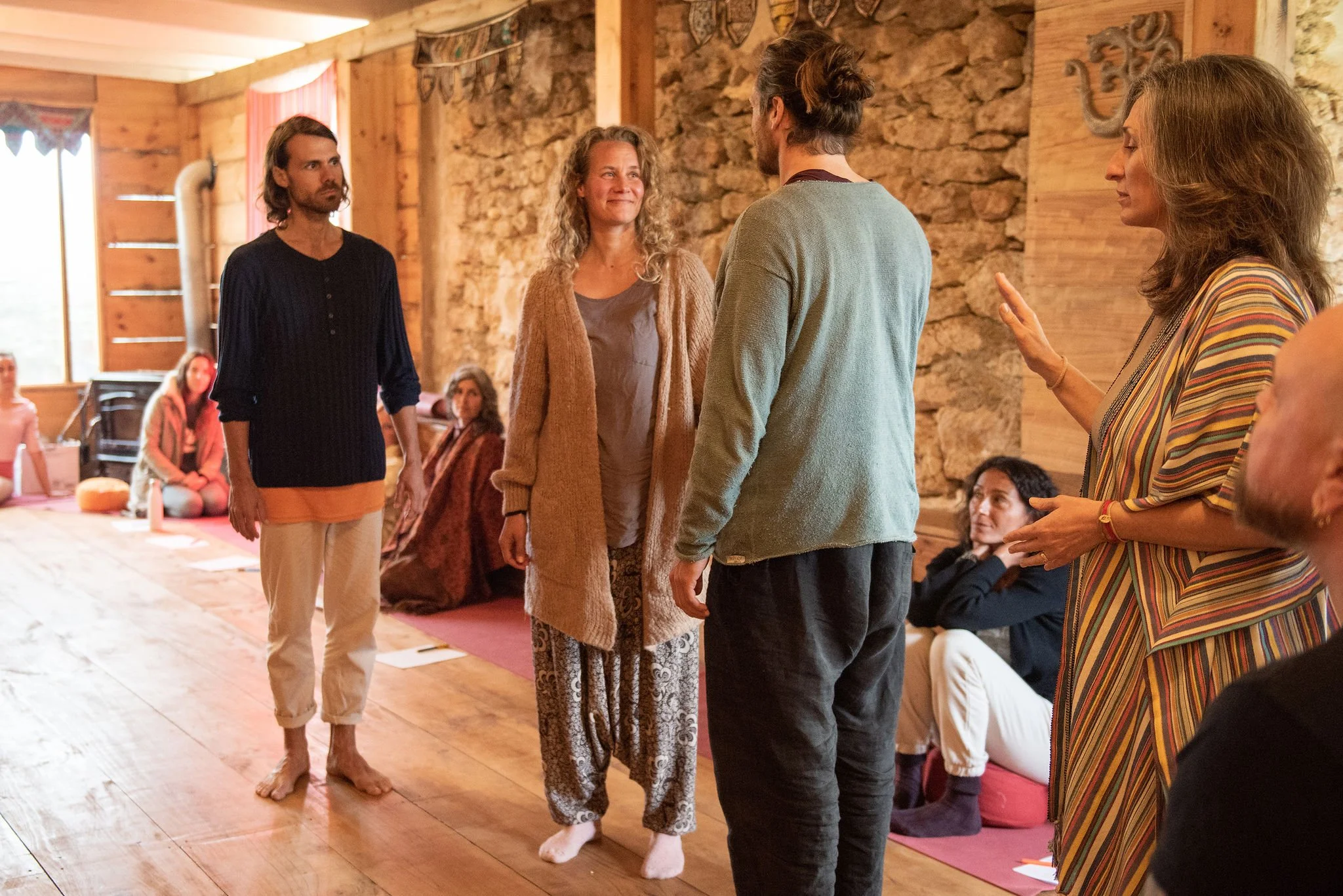
How to Become a Family Constellations Facilitator: Steps, Skills, and Training Insights
Understanding the Role of a Family Constellations Facilitator
Family Constellations is a therapeutic approach designed to explore hidden dynamics within families and ancestral lines that can affect present relationships and personal well-being. To become a family constellations facilitator, it is essential to grasp the depth and purpose of this practice. A facilitator guides participants through sessions where individuals represent family members or key elements of an issue, allowing systemic patterns to surface. The role demands a careful balance of neutrality and compassion, as the facilitator supports participants in recognizing unresolved traumas or long-standing relational entanglements. Facilitators often create a safe and respectful environment where participants feel supported to express emotions and insights freely. This work requires more than technical knowledge—it calls for the ability to hold space for complex emotions and often profound revelations. Understanding the facilitator’s role forms the foundation for anyone interested in making this healing modality a professional path.
Essential Skills and Personal Qualities for Aspiring Facilitators
Those who want to become a family constellations facilitator need to develop a unique blend of interpersonal and intrapersonal skills. Deep listening is vital, as sessions often involve subtle cues and sensitive disclosures that must be handled with care. Emotional intelligence allows facilitators to remain calm and centered while guiding participants through emotionally charged moments. Empathy is key, but it must be balanced with neutrality to avoid influencing the constellation’s direction. Strong communication skills are required to explain processes clearly and to ensure that participants understand their roles and boundaries. Facilitators must also cultivate self-awareness, so their personal beliefs or unresolved issues do not interfere with the work. Practicing mindfulness or other grounding techniques can enhance presence and attentiveness. These personal qualities not only improve facilitation but also inspire trust and create a healing environment for all participants.
Training and Certification Pathways
Formal training is a critical step for anyone who wants to become a family constellations facilitator. Accredited programs often combine theoretical learning with experiential practice, allowing students to experience constellations from both participant and facilitator perspectives. A typical curriculum includes systemic theory, family dynamics, trauma awareness, and practical facilitation skills. Many training programs require supervised practice sessions to ensure that students gain confidence and receive constructive feedback. Certification standards vary by country, but reputable schools provide clear guidelines on hours of study, mentorship requirements, and ethical frameworks. Some facilitators also supplement their training with courses in psychology, counseling, or somatic therapies to broaden their expertise. Continuing education is strongly encouraged, as new research and evolving practices keep facilitators up to date and effective. Choosing a respected training institute with experienced teachers is an investment in both professional credibility and personal growth.
Steps to Start Your Journey
Before enrolling in a training program, it helps to reflect deeply on personal motivation and readiness. Becoming a family constellations facilitator involves emotional commitment, as the work often reveals personal and familial patterns for the facilitator as well as clients. The journey typically begins with attending several family constellations sessions as a participant to understand the process from within. Researching various training institutes and comparing their teaching philosophies ensures alignment with personal goals and learning styles. Building a foundation in related fields such as systemic therapy or counseling can provide valuable context for the work. Many aspiring facilitators benefit from journaling or mentorship during this phase to clarify intentions and address any personal obstacles. This careful preparation lays a strong groundwork for formal training and future practice.
Building Practical Experience
Hands-on experience is indispensable for those aiming to become a family constellations facilitator. Observation of experienced facilitators in live sessions provides insight into the subtleties of group dynamics and energy flow. Most training programs include practice groups, where students can facilitate under supervision and receive feedback on their techniques. Volunteering to assist in workshops or community sessions can further refine facilitation skills and confidence. Establishing a mentorship relationship with a seasoned facilitator allows for guidance and support while handling complex cases. Ethical considerations must always be prioritized, including maintaining confidentiality and setting clear boundaries with participants. Gaining diverse experience, such as working with different cultural backgrounds or varying family structures, enriches a facilitator’s perspective. Each practical opportunity strengthens the ability to create safe, transformative sessions for future clients.
Establishing a Professional Practice
Once training is complete, the next phase is setting up a practice to share this powerful work with others. New facilitators can choose between creating a private practice, joining a wellness center, or collaborating with therapy collectives. Ethical marketing is important, using language that accurately reflects the facilitator’s services and qualifications without overpromising outcomes. Building a professional network with therapists, counselors, and holistic health practitioners can lead to referrals and collaborative opportunities. Offering introductory workshops or community sessions helps to build trust and visibility while gaining additional experience. With the growth of digital platforms, many facilitators now offer online or hybrid constellations, expanding their reach to clients who cannot attend in person. Creating a welcoming space—whether virtual or physical—reinforces the facilitator’s commitment to a safe and healing environment. Over time, consistent practice and client relationships establish credibility and a steady flow of participants.
Challenges and Growth Opportunities
Like any profession centered on human emotions, facilitation of family constellations brings challenges. New facilitators may initially struggle with self-doubt or fear of making mistakes, but regular supervision and peer support can help. Emotional self-care is vital, as witnessing clients’ deep pain and transformation can be intense. Practicing personal therapy, meditation, or other grounding methods ensures that facilitators remain balanced and present. Ethical dilemmas may arise, such as when family members disagree about participation, requiring careful navigation and adherence to professional guidelines. Despite these challenges, the field offers rich opportunities for growth and specialization. Some facilitators choose to focus on organizational constellations for businesses, couples counseling, or integrating somatic techniques for deeper healing. Embracing these learning experiences strengthens both professional competence and personal resilience.
Frequently Asked Questions (FAQ)
How long does it take to become a certified family constellations facilitator?
Training duration varies, but most programs require one to two years of study, including supervised practice and personal participation in constellations.
Do I need a psychology degree to begin training?
A formal psychology degree is not required, though a background in counseling, therapy, or related fields can provide a helpful foundation.
What are typical costs associated with training programs?
Costs range widely depending on location and program depth, generally between several thousand to over ten thousand dollars for comprehensive certification.
Can I facilitate sessions online?
Yes, many facilitators offer online sessions, especially for clients who cannot attend in person. Training should include guidance for virtual facilitation.
How do I find clients once certified?
Building a professional network, offering introductory workshops, maintaining a professional website, and collaborating with wellness practitioners can help attract clients.


